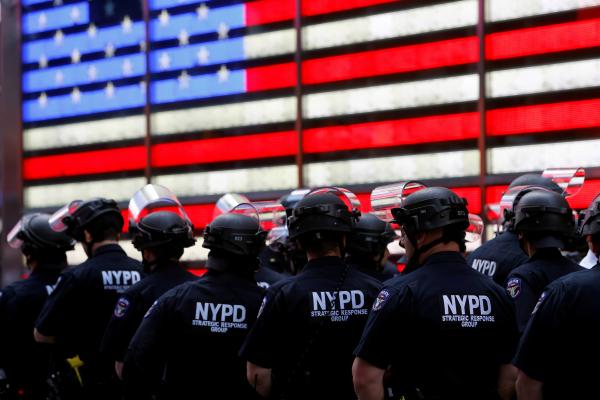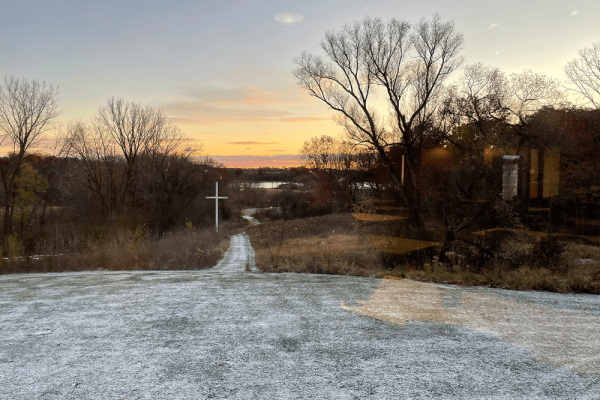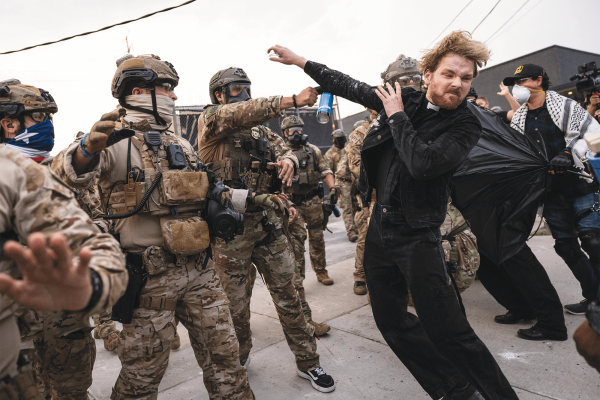#DefundThePolice. I had never uttered that phrase before this month. I’ve long believed that U.S. law enforcement is rife with systemic racism. I knew that Northern police departments intentionally recruited Southern whites during the Great Migration, luring them with the promise of being able to dominate and inflict violence upon “uppity Negroes.” I also knew that white supremacist groups have been quietly infiltrating law enforcement over the past decade, because they know that police can kill black and brown people with impunity.
As the news about the killing of Ahmaud Arbery began to spread, I knew that we were just in the beginning, that as temperatures rise, so do police killings of black people. Every year, from March to September, there’s a spike. My cousin, a retired defense attorney, said that it’s because police don’t like getting out of their cars when it’s cold. That’s how fragile black life in the U.S. is. Our risk of being assaulted or killed by police enforcement hinges on little things like the weather, not upon the use of body cameras.
I knew all of that. But then, as protests following the murders of Breonna Taylor and George Floyd began unfolding across the nation, it became clear that our police problem is even bigger than we thought. In multiple cities, police responded to protesters with aggression and violence. The violence was not limited to black protesters. The police also targeted black bystanders, white protesters, people with disabilities, and local black business owners trying to protect their property. Police have claimed aggression was necessary to subdue violent protesters, but in several cases, they have assaulted bystanders without provocation.
In Atlanta, Ga., police officers assaulted two college students, Messiah Young and Taniyah Pilgrim, who were simply sitting inside their car. In San Jose, Calif., police fired rubber bullets at Derrick Sanderlin, who had led bias reduction training with the department for three years. They inflicted enough damage that Sanderlin may be unable to have biological children. In Louisville, Ky., police killed David McAtee, who ironically was known to give free food to homeless people and to Louisville police. In Buffalo, after two police officers assaulted 75-year-old Martin Gugino, a longtime peace activist and Catholic Worker, the remaining 57 officers on the department’s emergency response team resigned from that unit (although not from the job) to protest the officers’ suspensions.
We live in a militarized police state wherein law enforcement officers view themselves as our overlords and conquerors rather than as servants and protectors of the public. They believe that violence is a necessary tool and that they should not have to answer to anyone when they use it. And they use it against black people readily and indiscriminately. Then, in the rare but increasing cases when city and county leaders promise accountability and reform, law enforcement retaliates.
Sometimes that retaliation is deadly. In 2000, Derwin Brown was sheriff-elect of Dekalb County, which covers the eastern part of the metropolitan Atlanta area. At the time, the sheriff’s department was overridden with corruption and Brown, a longtime police veteran, was elected on a reform platform. Just before he took office, he was assassinated by a deputy under the orders of his predecessor, the outgoing sheriff, Sidney Dorsey.
Clearly, this is more than a “few bad apples.” The entire orchard is tainted. So yeah, #DefundthePolice. Perhaps even #AbolishthePolice. The two slogans are not simply catchy hashtags or knee-jerk responses to the recent violence. They represent two systematic approaches to reducing the role of policing, and thus police violence, in society.
The abolitionist organization Critical Resistance has produced a helpful chart demonstrating the differences between reform efforts, defunding efforts, and abolitionist efforts. Calls for defunding argue that if police cannot reduce crime without themselves engaging in violence, then they are ineffective and should receive less support from our tax dollars. Instead, those funds should be diverted to other programs and organizations that do a better job of reducing crime and promoting public safety. For some, defunding is a step toward abolition, which entails dismantling systems of policing and creating viable alternatives. Abolitionists recognize what the police reaction to protests has confirmed: Reforms do not work. Many officers do not believe themselves to be answerable or accountable to the people, to local politicians, or even of other reform-minded officers.
We need new solutions. Can Christians be part of that solution? This would mean creating and evolving alternate structures and processes for responding to the social ills that we have made the responsibility of law enforcement: homelessness, drug addiction, mental health crises, financial crises, and school behavior problems. It would also require white Christians to stop thinking of police as their personal “protection agency,” as Amy Cooper did when she called police upon Christian Cooper (unrelated), an African-American birdwatcher in New York’s Central Park. Amy is probably no different than the overwhelmingly white, middle-class proponents of cityhood in my unincorporated area of Atlanta, who frequently tout an increased police presence as a potential benefit of forming a new city. It’s hard to think of defunding or abolishing the police when you think that “Officer Friendly” is your personal protector and watchdog. But for many of us, there is no “Officer Friendly.”
Keep that in mind the next time you encounter calls to #DefundthePolice or #AbolishthePolice. Do not dismiss them out of hand. Instead, recall that this is not the first time in history that law enforcement units nationwide have been saddled with rampant corruption, graft, and ethnic violence. Remember that police and sheriff’s departments have overwhelmingly proven to be incapable of reforming themselves and resistant to reform attempts from outsiders. Recognize that our current system is not working and it has not worked for a long time.
Got something to say about what you're reading? We value your feedback!





